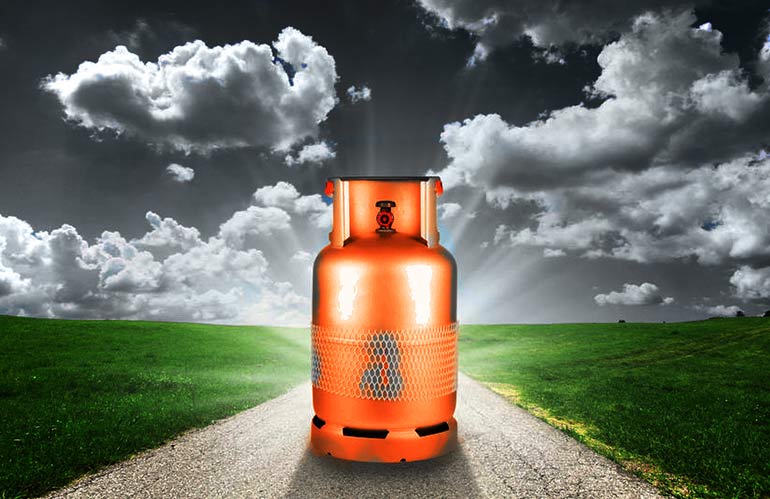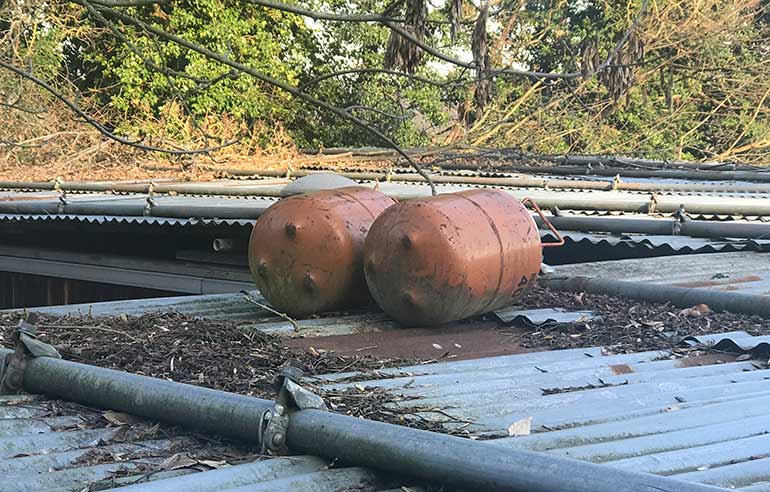Rise of the disposable “refillable”
23rd January 2019
EUROPE: A clampdown on the supply of refrigerant in illegal disposable cylinders has created a new illicit market in refrigerant being sold in refillable cylinders.
Huge increases in the cost of refrigerants last year, as a result of the European F-gas phase down, created a vast black market in the higher GWP gases. Much of this was sold quite openly on the internet in disposable, non-refillable cylinders, a container which had been banned in Europe since 2007.
While a clampdown by the authorities in some European countries may have stemmed the flow of gas in illegal disposables, some of the illegal activity has now switched to supposedly legal refillable cylinders.
The refrigeration and air conditioning industry, along with environmental groups are calling on the authorities to take action to stop this increasingly worrying illegal trade.
With no formal waste stream, disposable cylinders were banned due to the “heel” of refrigerant that inevitably remains behind in an “empty” cylinder. It is estimated that the vapour and liquid heel could represent as much as 10% of the original refrigerant charge – all of which could inevitably be released to atmosphere. In addition to Europe, disposable, non-refillable cylinders are also banned in Canada, India and Australia.
Originally banned in Europe in 2007, non-refillable cylinders are included under placing on the market prohibitions of the F-gas regulations 517/2014.
Article 2 (13) of the regulation defines a non-refillable container as a “container which cannot be refilled without being adapted for that purpose or is placed on the market without provision having been made for its return for refilling”.

Most established refrigerant suppliers operate a cylinder rental scheme. The monthly rental charge and financial penalties are designed to encourage engineers to return all empty cylinders to the supplier for refilling. As well as ensuring compliance with the F-gas regulations, this returns policy also enables the supplier to ensure the quality and safety of its cylinder fleet is maintained by making repairs and replacing cylinders as necessary. In some instances, suppliers place a returnable deposit on the cylinder, instead, to encourage its return.
The high price of refrigerants, means that the comparatively low cost of the cylinder is no barrier to the potential huge profits to be made from importing and selling the gas in “refillable” cylinders. These cylinders, possibly imported outside of the quota system, are now being sold with no provision for their return for refilling as required under the F-gas regulations.
There are a number of sellers in Europe that are currently, quite openly, selling refrigerant in supposedly refillable cylinders but with no provision for their return for refilling. Some internet adverts claim that the cylinder is included in the price and becomes the property of the customer. This is clearly in contravention of the F-gas regulations.
DG Clima, the European Commission department responsible, told the Cooling Post that the F-gas regulation cannot require a manufacturer or a seller of a refillable container to refill it. “However, Article 2(13) of the F-gas regulation does require that when the refillable container is placed on the market, arrangements for its return for refilling purposes are in place,” it said in a written response to our questions.
Worrying trade
The loophole in the system has not gone unnoticed by environmental groups. Clare Perry, the Environmental Investigations Agency UK climate campaigns leader, said: “It seems clear that unless adequate means for the return of cylinders is provided by the seller, simply offering “refillables” is not in line with the F-gas regulation. Member States need to be clear about what measures are adequate to ensure the return of cylinders and to take sweeping action to stop this increasingly worrying illegal trade. Simply removing adverts on websites will not prevent unscrupulous traders from trying elsewhere – enforcement efforts need to follow through and legal action needs to be taken against those not obeying the rules.”
DG Clima places initial responsibility for policing on the individual European member states. “A case-by-case analysis is required by the competent authorities of member states with a view to assessing whether existing arrangements are sufficient to fulfil the obligations stipulated in Article 2(13) of the F-gas regulation,” it says. “In the absence of any arrangements, or where the existing arrangements are considered to be insufficient in line with Article 2(13) of the F-gas regulation the container cannot be considered as refillable and its placing on the market is prohibited.”
Despite this apparently unequivocal response, illegal sales continue. In addition, there are a number of seemingly legitimate established refrigerant suppliers across Europe who also appear to be contravening these regulations by not offering any provision for cylinder return.
DG Clima admitted that “such practices appear not to be in line with the F-gas regulation”.
Further, it said: “Article 25 of the F-gas regulation obliges member states to lay down rules on penalties for infringements of the F-gas regulation that are effective, proportionate and dissuasive.”







